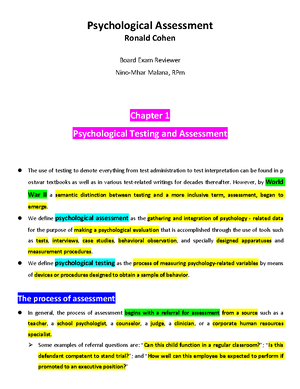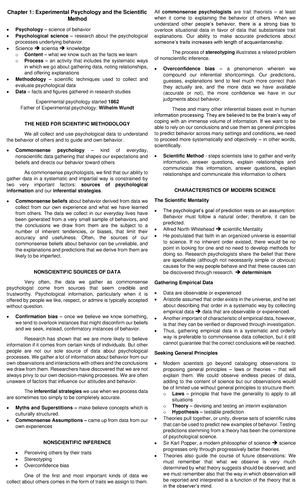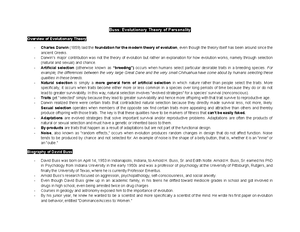- Information
- AI Chat
UNIT-ONE GEED-10013-LIFE-AND- Works-OF- Rizal-2
BS Psychology
Recommended for you
Preview text
POLYTECHNIC UNIVERSITY OF THE PHILIPPINES
College of Social Sciences and Development DEPARTMENT OF HISTORY
INSTRUCTIONAL MATERIALS FOR
GEED 10013: Life and Works of Rizal
PREPARED BY:
GUIEB, ELISOR C. JR.
MARAYAN, EULA JEAN L.
AGUSTIN, MA. RHODORA O.
CABANILLA, NARCISO L.
CONCILLADO, ALJON I.
MENDEZ, JEFFERSON R.
PERMEJO, JEROME P.
PASCUAL, MC DONALD DOMINGO M.
PINGUL, ARVIN LLOYD B.
TAN, RYAN
UBALDO, ABEL A.
VILLAR, PAULO BENEDICTO C.
TABLE OF CONTENTS
GEED 10013: LIFE AND WORKS OF RIZAL Course Overview ................................................................................................... 1 Table of Contents .................................................................................................. 2 Course Outcomes ................................................................................................. 3 Instructional Materials ........................................................................................... 4 Unit 1: UNDERSTANDING THE RIZAL LAW 5 Republic Act 1425 Mc Donald Domingo M. Pascual ......................................... 6
Unit 2: NATION, HEROES AND NATIONALISM 17 Philippine Nationalism: Heroes and their Ideas Jefferson R. Mendez................. ... 18
Unit 3: THE NINETEENTH CENTURY PHILIPPINES 24
The Philippine’s Economic, Social and Political conditions during the Spanish Colonization until the 19th century as Rizal’s context Elisor C. Guieb, Jr ............... 25 The Case of Hacienda de Calamba: In Focus Paulo Benedicto C. Villar............... 31
Mid-term Assessment ..................................................................................................................... 36
Unit 4: FAMILY, EDUCATION AND MATRYDOM OF RIZAL 37 The Family, Education and Travels of Rizal Abel A. Ubaldo ............................... 38 Exile in Dapitan, Trial and Execution Paulo Benedicto C. Villar ........................... 49 Jose Rizal in the La Solidaridad and his views on the Revolution Paulo Benedicto C Villar ............................................................................ 54
Unit 5: WORKS AND WRITINGS OF RIZAL 66 Annotation of Antonio de Morga's Sucesos de las Islas Filipinas Arvin Lloyd B. Pingul .................................................................................
67
Noli Me Tangere and El Filibusterismo Eula Jean L. Marayan ............................ 70 The Indolence of the Filipinos ( Sobre La Indolencia de los Filipinos ) Aljon I. Concillado ................................................................................... 79 Philippines a Century Hence ( Filipinas dentro de cienaños ) Aljon I. Concillado ................................................................................... 83 Liham sa Mga Kababaihan ng Malolos Ma. Rhodora O. Agustin ....................... 88
Final Assessment .................................................................................................................. 91 Grading System .................................................................................................. 92 References ......................................................................................................... 93
COURSE OUTCOMES
GEED 10013: LIFE AND WORKS OF RIZAL
At the end of the course, students should be able to:
Discuss Jose Rizal’s life within the context of the 19th century Philippines in relation to international events.
Understand the context that produced Rizal and other nationalists.
3. Analyze Rizal’s various works, particularly the novels Noli me Tangere and El Filibusterismo.
Organize Rizal’s ideas into various themes.
Demonstrate a critical reading of primary sources from various personages relevant to the formation of nationalism.
Interpret the values that can be derived from studying Rizal and other nationalists’ life and works.
Display an appreciation for education and love of country.
Overview
Unit One
UNDERSTANDING THE RIZAL LAW
Filipino students may be wondering about why they are still obliged to study the life and works of Jose Rizal as part of their college degree, despite having studied the life and writings of our national hero in their basic education. Some of them may see it as the repetition of the discussions they have had and doing it again would just be a waste of time and effort. It is therefore a great surprise for them that, upon entering college, they will be mandated by a law to study the life and works of Jose Rizal without any idea on the legislative processes this law underwent so that a course on the heroes life and works would be incorporated into the Philippine educational system.
On June 12, 1956, President Ramon Magsaysay signed the bills proposed by Senators Claro M. Recto and Congressman Jacobo Gonzales. The act of President Magsaysay converted the bills into a law known as Republic Act 1425 or the Rizal Law. It entrusted the teaching of the life, works and writings of Jose P. Rizal, in particular his Noli me Tangere ( Noli ) and El Filibusterismo ( Fili ) in the secondary and college levels. This law hoped that the teaching of Rizal’s life would strengthen the students’ nationalism, patriotism and their sense of appreciation to the role of national heroes in the historical development of the country. The process through which this measure was tackled in both houses of Congress was not easy as the Catholic Church and other groups opposed the bills. Thus, in order to fully appreciate and understand this law, it is necessary to study the reasons why there was a necessity of it and the context through which it was discussed in Congress.
LESSON 1
Republic Act 1425
Learning Objectives
At the end of this lesson the student should be able to:
Understand the compelling reasons why RA 1425 was enacted into law; Examine the differing points-of-view of the pros and the antis, including the Catholic Church in the passage of RA 1425; and Evaluate whether RA 1425 was able to achieve the purposes of its enactment some at 60 years later.
Course Materials
The educated nationalists like Jose P. Laurel and Claro M. Recto wanted that nationalism and patriotism would flourish among the youth. Thus, they envisioned to educate them about the ideals of Jose Rizal so that the future generations would be able to independently stand and govern the country, away from foreign impact. Thus, the idea to teach the unexpurgated versions of Rizal’s novels4 Noli Me Tangere and El Filibusterismo 4which were considered as <constant and inspiring sources of nationalism=.
The two statesmen, including Congressmen Jesus Parades and Arturo Tolentino, believed in rekindling the kind of life that Rizal led and the visions he had for his country among the youth. This is because the youth shall serve as the leaders of the future generations. And as leaders of the future generations, they shall lead the country to its destiny. The lawmakers firmly believed that the aspirations of Rizal for his country are relevant across all epochs.
This discussion on this lesson was adopted from the PowerPoint presentation of Mc Donald Domingo M. Pascual titled RA 1425. It is the humble hope of the discussion to present the process through which the Rizal Law was debated before its enactment into law so that the study of the course would be more meaningful to the students.
Figure 1: The diagram of the legislative process from: <The Legislative Branch=. The Official Gazette, officialgazette.gov/about/gov/the-legislative branch/.
The Controversies Created by the Rizal Bills
According to Sen. Claro M. Recto, the author of the original version of Senate Bill No. 438, the study of the great works of our foremost national hero is an inherent love for the country. He said that the reading of Rizal’s novels would strengthen the Filipinism of the youth and foster patriotism. With this purpose, he pushed for the compulsory study of the life, works and writings of Jose Rizal among the students of schools, colleges and universities, public or private.
On April 17, 1956, Senator Jose P. Laurel, the sponsor of the bill, tackled SB 438 with the title An Act to Make Noli Me Tangere and El Filibusterismo Compulsory Reading Matters in All Public and Private Schools, Colleges and Universities and for Other Purposes. As the chairman of the Senate Committee on Education, Senator Laurel expressed his reverence to Rizal through the following words: < The hero9s [Rizal] greatness lies not only in his intense patriotism, exemplary conduct and behavior as a Filipino, the courage of his conviction and the utter disregard of the
Figure 2: A reproduced copy of RA 1425 from: <Republic Act No. 1425.= Official Gazette, officialgazette.gov/downloads/1956/06jun/19560612-RA- 1425-RM
No. 438, Senator Rodrigo told, <.. cannot allow my son who is now 16 to read the Noli Me Tangere and El Filibusterismo lest he lose his faith.=
Another senator who expressed his opposition to the passage of the bill was Senator Decoroso Rosales. He believed that approval of the bills would lead to the closure of Catholic schools all throughout the country, and a political party might be inevitably put up by the Catholics to show their strong resentment to the law.
Defense for Senate Bill 438
Sen. Claro M. Recto, the author of the original version, averred that Catholic schools would never close since they are the sources of the Church’s income, as well as its religious and political powers. And if a political party would be set up, it would be divided into two 4 the political partyto be headed by either Sen. Rodrigo or Sen. Rosales and the party to be composed of Filipino Catholics who do not only believe in God and serve Him but also possess a strong love for their country and believe in serving her.
The debates on the Rizal bill also ensued in the House of the Representatives. House Bill No. 5561, the identical version of SB No. 438, was filed by Representative Jacobo Gonzales of the First District of Laguna. In his sponsorship speech, Congressman Gonzales said, <The bill merely declares Jose Rizal9s Noli Me Tangere and El Filibusterismo, in their original edition or in their unexpurgated English and national language versions as compulsory reading matters in all public and private schools, colleges and universities. The bill selects the writings of Rizal because he is the greatest of our national heroes, the staunchest apostle of nationalism, the greatest man the Malayan race has ever produced and a universal genius and hero of humanity. We have chosen the Noli and the Fili for in their pages we see our lives as before a mirror 4 our defectsas well as our strengths, our virtues as well as our vices. Knowing these, our consciousness as a people is stirred and we learn to prepare ourselves for painful sacrifices that ultimately lead to self-reliance, self-respect and freedom. The Noli and Fili mirror Philippine life, true today as it was during the time of Rizal, only the dates and names have changed= ( quoted from Rosales, Sinag Vol. 1 ).
Meanwhile, Radio Commentator and Former Cong. Jesus Paredes (of Abra) expressed opposition to the manner through which the objectives of the bills would be attained. He said that <the bill [HB 5561] would violate of [sic] Section 927 of the Revised Administrative Code .= He likewise stated <that [the] Catholics had the right to refuse to read them as it would 8endanger their salvation.=
Amendments of the Bills
To resolve the issues, amendments of the bills were respectively proposed in both houses of Congress. Senator Jose P. Laurel penned the amended version of SB 438. His version was thus entitled, An Act to Include in the Curricula of All Public and Private Schools, Colleges and Universities Courses on the Life, Works and Writings of Rizal Particularly His Novels No li Me Tangere and El Filibusterismo, Authorizing the Printing and Distribution Thereof, and for Other Purposes. In the House of Representatives, the amended version was authored by Congressman Arturo Tolentino. He appealed to his colleagues with the following statements: <I appeal to the members of this House, both those who spoke in favor of the Gonzales bill as originally worded and those who spoke against the bill to agree to reason, to give something of their original contention, so that we may meet in the middle ground, not for our own sake, not for the pride of having won in the halls of this Congress but for the sake of our people who must remain united,
for the leaders of the people must not think of their own personal victory or glory but of the unity of the people whom they represent. There can be no true nationalism when the people are divided. It is incumbent upon the leaders of the people to preserve unity among the people, for nationalism flowers... in the hearts of the people.... I appeal to you. Let us vote unanimously... as an example to our people. I have every reason to believe that the people listening to us all over the country will unite as we do when we vote as one in this bill. Let us not think of which side will win; let us just think that with this bill, the Filipino people will win because they will continue to remain whole and cohesive. Within these walls, this substitute bill represents the victory of reason and wisdom; outside these halls, it means the triumph of a united Filipino people= ( quoted from Rosales, Sinag Vol. 1 ).
Provisions of the Amended Versions as Stipulated in the Official Gazette (pp. 1-3)
Deleted 3 Penalty to be imposed for any public or private school, college and university and the head and teachers of the school found guilty of violating, failing to comply with or circumventing the provision of the law.
Replaced with 3 Authorization for the appropriation of the amount of P300, 000 for the printing and distribution of the copies of the novels and other writings of Rizal in their English, Tagalog and principal dialect translations.
Added 3Nothing in the Act shall be <construed as amending or repealing section nine hundred twenty-seven of the Administrative Code (Official Gazette,
Provided 3 The Board of National Education is hereby authorized and directed to adopt measures to implement and carry out the provisions of Section 1 of the Act, including the writing and printing of appropriate primers, readers and textbooks.
Many lawmakers still hoped that the amended versions would not pass but President Ramon Magsaysay, one of the presidents oftentimes opposed by Recto due to the former’s policies, signed them into law on June 12, 1956.
Assessment
Instruction: Discuss the item thoroughly. Write the question before each answer. Your answer should contain at least three (3) paragraphs of not less than four (4) sentences each. You may write your answers in Filipino. Do not forget to write your full name in the upper left corner of the paper and your course, year and section below it while the name of your professors should be indicated in the upper right.
- Do you think that the passage of the Rizal bills into a law warranted the objectives that the sponsors conceived in 1956? Explain your answer.
- Do you think that the objectives were attained thereafter and that their attainment resonated until the present? Expound your answer.
Note : Please do not write anything unnecessary on this instructional material. Use a clean sheet of bond paper when answering your activity/ assessment task either in a type-written or hand-written format (please see the appendices for sample template). When doing a hand- written work, make sure that your penmanship is legible.
GRADING SYSTEM
GEED 10013: LIFE AND WORKS OF RIZAL
In relation to the Memorandum Order of the VPAA Dr. Emmanuel C. De Guzman dated August 3, 2020, grading system shall be modified with the following changes: 70% shall be given for class standing while 30% shall be for the midterm/final examination. For this course, class standing shall be limited to the following components: (1) Submission of ALL the assigned assessment activities 3 this shall substitute the attendance component; and (2) quizzes/assessments indicated at the end of each lessons. As previously-mentioned in the Assessment Instruction, there were three (3) quizzes for the Midterm part. As stipulated in the Memorandum Order from the Office of the VPAA dated August 3, 2020, attendance, recitation, and oral reports shall NO LONGER BE PART OF CLASS STANDING.
Appendix A
Surname, Given Name M. Course Instructor
Your Course, Year and Section Unit/Chapter Lesson
N. Discuss the questions for the exam or activity thoroughly. Write the question before each answer. Each answer should contain at least three (3) paragraphs of not less than four (4) sentences. You may write your answers in Filipino.
UNIT-ONE GEED-10013-LIFE-AND- Works-OF- Rizal-2
Course: BS Psychology
University: Polytechnic University of the Philippines

- Discover more from:BS PsychologyPolytechnic University of the Philippines999+ Documents
- More from:BS PsychologyPolytechnic University of the Philippines999+ Documents









